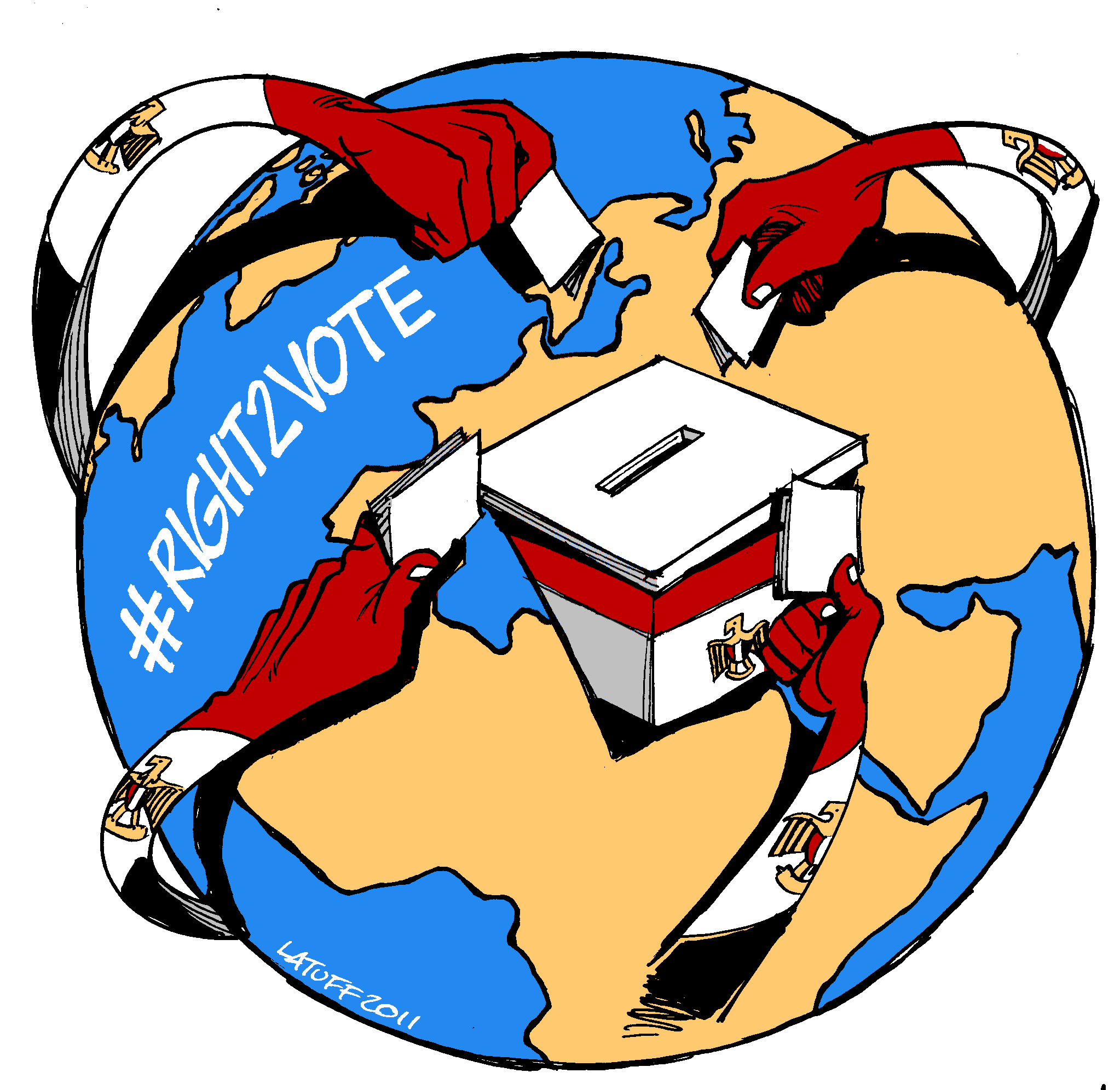 It’s hard to believe that it’s been over a year since the ‘Arab Spring.’ The unrest that plagued and freed the Arab nations has not ended, but today, as Egyptians head to the polls there is hope in sight of positive reform. Those who are 18 years old and over, not a member of the armed forces, convicted criminals, or those who are bankrupt will be eligible to vote for one of 13 running candidates.
It’s hard to believe that it’s been over a year since the ‘Arab Spring.’ The unrest that plagued and freed the Arab nations has not ended, but today, as Egyptians head to the polls there is hope in sight of positive reform. Those who are 18 years old and over, not a member of the armed forces, convicted criminals, or those who are bankrupt will be eligible to vote for one of 13 running candidates.
If no candidate wins over 50% of the vote today, which is to be expected given so many choices, then another vote will be held on 16 and 17 of June. Egyptians abroad began casting their votes at embassies around the world on 11 May with the final results to be announced 21 June.
The hot topics in the election are the economy, which has taken a severe turn for the worst amid the uprisings, and security. While it’s not clear how much power the new leader will have Bloomberg Businessweek reports that ‘While the ruling military council has said it will transfer authority to a civilian government after the vote, it still controls large sections of the economy and will continue to retain political influence.’ This situation is probably for the best as this is the first time Egyptians have been able to elect their own President in 5,000 years, reported BBC News. The more that power is spread out until a constitution is created, the lower the chance of concentrated power turning into a dictatorship.
BBC also speculated on the four main contenders for the position being: Ahmed Shafiq, a former commander of the air force and briefly prime minister during February 2011 protests; Amr Moussa, who was a foreign minister and head of the Arab League; Mohammed Mursi, who leads Muslim Brotherhood’s Freedom and Justice Party and was put in as second choice, once the first candidate was deemed unable to run because of a prior conviction; finally, Abdul Moneim Aboul Fotouh, an independent Islamist candidate.
BBC reporter Jon Leyne discusses the opinion polls and the lack of a clear favourite in the election. While some polls have shown 40% of the vote is going to Moussa of the Arab League, others show only 12%. Most interesting of all is Leyne’s comment on the suspicion of the Egyptian people of candidate Shafiq. Being a former general would certainly keep the military in power that they will likely hold despite whatever outcome. Leyne states ‘That suspicion is heightened by the fact that the candidate who seems to be making a late surge, Ahmed Shafiq, also just happens to be a former general whom most people believe would be the favoured candidate of the ruling military council. The military have insisted they are entirely neutral in the poll.’ How could the population not be suspicious of the voting and its candidates after all the years of dictatorship? Prior to this election, the population was told who to vote for, and that is what they did unanimously. Now that choice is involved, each vote is fought for and each voter accountable if this election is to work correctly. However, the people are still suspicious of those in power.
While there are several groups represented, all parties are encouraging their supporters to respect the final decision of the vote and set a positive example of democracy for the other nations. While a new constitution will be developed post-vote, the situation is all very new and unclear thus far, as to what the people will be getting from their new leader. Without a political figure to speak of, and the military in control of the country, politics have been by the wayside as of late and dealing with the immediate unrest a priority. Hopefully this election will be a step in the right direction to resolving the nearly year and a half long conflict.
 Julia McDonald is completing her Masters of Global Communications at La Trobe University. Follow her on Twitter @Jules_mcdonald.
Julia McDonald is completing her Masters of Global Communications at La Trobe University. Follow her on Twitter @Jules_mcdonald.






